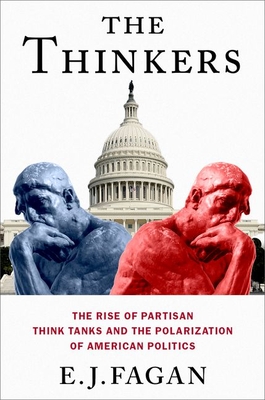
Fagan, E. J.
product information
description
adopted not only different policies, but different sets of facts. As E.J. Fagan argues, partisan think tanks have helped create these alternate realities in their capacity as de facto formal party organizations. Through the analyses generated by aligned think tanks, political elites on both the left and right frequently offer radically different assessments of a policy's consequences, such as the effect of tax cuts on deficits or the impact of environmental regulations on economic growth. In The Thinkers, Fagan tells the story of how partisan think tanks--such as the Heritage Foundation and Center for American Progress--displaced non-partisan experts to become the closest policy advisors to the Republican and Democratic Parties. He explores their history, how they influence policymakers, and how their influence impacts the polarization of American politics. More broadly, Fagan shows that the rise of partisan think tanks tracks closely with the increase in political polarization since the 1970s. Because they are funded and staffed by strong ideologues, partisan think tanks seek to move their party's preferences to the left or right of center. When they are successful, parties take more extreme positions than if they had only drawn information from non-partisan sources, which increases polarization. A powerful account of the impact of partisan think tanks on American democracy, The Thinkers will reshape our understanding of the fundamental drivers of the US's polarized political system.
member goods
No member items were found under this heading.
Return Policy
All sales are final
Shipping
No special shipping considerations available.
Shipping fees determined at checkout.







